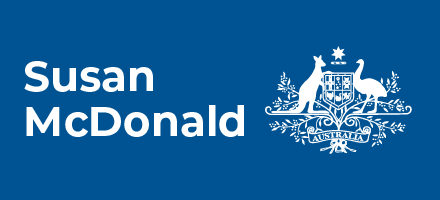RESOURCES RICHES AT RISK UNDER HOSTILE LABOR POLICY – JOINT MEDIA RELEASE – SENATOR SUSAN McDONALD & THE HON. ANGUS TAYLOR

More than $15 billion in future east coast gas projects are under a cloud of uncertainty due to Labor’s hostile attitude towards Australia’s energy resources sector.
Shadow Treasurer Angus Taylor and Shadow Minister for Resources Senator Susan McDonald said nine projects listed in the latest Resources and Energy Major Projects report with plans to supply east coast domestic gas are under threat from Labor’s hostile policy environment which will increase the risk of future gas shortages.
These include east coast projects which are facing increasingly restrictive environmental and cultural hurdles, companies which have loudly sounded the warning bells on investment uncertainty, or projects which have been publicly identified as being at risk by energy experts.
When taking into account LNG projects in Australia’s west and north with the ability to provide supply into the east coast through import terminals, the value of projects that face the same uncertainty rises to $32 billion.
The annually published list of Resources and Energy Major Projects also neglected to take into account recent investment freeze announcements from major resources companies in response to Labor’s anti-resources policies, including coal projects by Glencore and BHP which have publicly been shelved.
Senator McDonald said the Albanese Labor Government was trying to spin figures from the Resources and Energy Quarterly report released this week to paper over one of the most hostile policy environments for mining this country has seen.
“On the one hand, Labor is happy to take credit for the forecast $459 billion in export earnings from a profitable resources sector, while at the same time joining forces with the Greens to implement unprecedented price controls, hand over more power to unions, increase environmental red-tape, fund anti-mining lawfare groups and continue to undermine the important role of gas and coal,” Senator McDonald said.
“Coal and gas alone are forecast to earn Australia $223 billion, but under Labor’s war on conventional energy commodities, 18 coal and gas projects have been reopened for environmental assessment after already receiving approval, and 43 oil and gas projects have been required to redo their consultation.
“Investor certainty in the resources sector plays an important role in underpinning Australia’s economic growth, which now comprises 13.7 per cent of our GDP. However, the forecast $68 billion drop in resources earnings does not bode well for our future prosperity as Australia’s investment pipeline comes under threat.”
“Our regional partners, like Japan and Korea, will also be very concerned about Australia’s approach to providing the energy commodities they need to power their economies.
“All this sends strong signals to international companies that they are not welcome here, so we can expect them to consider halting their investment, which will risk jobs and revenue for the Australian people.”
Shadow Treasurer Angus Taylor said market interventions were adding to red tape and complexity for investors both domestically and abroad.
“A strong resources sector means a stronger budget to pay for our essential services and reduce cost of living pressures,” Mr Taylor said.
“To achieve that, you need a government that works with business not against it. The billions of dollars of projects on hold or under question shows that when we are in a global race for capital, more regulation leads to less investment which means fewer jobs, less work for small businesses and a slower economy.”
The Shadow Treasurer said the government’s extraordinary intervention in the gas market and its anti-business posture has led to investment uncertainty in our economy.
“After six months in office, it’s concerning that for Labor, the answer to a problem is always more regulation, not less,” Mr Taylor said.
“The government’s latest forecasts make it clear that while the resource sector is strong now, more support is needed in the medium term to maintain that strength.
“This makes it all the more alarming that the government is cutting funding support for our resources sector and making extreme interventions that energy experts are warning will cool investment and decrease supply.”
ENDS

